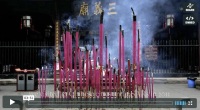It was only in November 2009 that China joined the supercomputer elite – ‘China joins supercomputer elite’ (November 16, 2009), and was ranked fifth last year. In less than a few months, Nebulae machine at the National Super Computer Center in Shenzhen comes in second fastest.
This list, like many other top lists, has an underlying element of ‘flag-waving’ and can be seen as a nationalist vehicle; I am sure China in no time will endeavour to get the accolade of fastest machine. “Their use of high-performance computers is really systematic of their industrial emergence,” Dr Jon Lockley, manager of the Oxford Supercomputing Centre.
– – –
China aims to be become supercomputer superpower
By Jonathan Fildes, Technology reporter BBC News
Source – BBC, published May 31, 2010
China is ramping up efforts to become the world’s supercomputing superpower.
Its Nebulae machine at the National Super Computer Center in Shenzhen, was ranked second on the biannual Top 500 supercomputer list.
For the first time, a second Chinese supercomputer appears in the list of the top ten fastest machines.
However, the US still dominates the list with more than half the Top 500, including the world’s fastest, known as Jaguar.
The Cray computer, which is owned by the Oak Ridge National Laboratory in Tennessee, has a top speed of 1.75 petaflops.
One petaflop is the equivalent of 1,000 trillion calculations per second.
It is used by scientists conducting research in astrophysics, climate science and nuclear energy.
By comparison, China has 24 machines in the list. Its fastest has a top speed of 1.20 petaflops, more than double the speed of its previous top supercomputer. However, it has a theoretical top speed of nearly 3 petaflops, which would make it the fastest in the world.
The fastest machine in the UK – which has 38 supercomputers on the list – is housed at the University of Edinburgh. It has a top speed of 0.27 petaflops.
“The Top 500 list definitely has an element of flag waving,” said Dr Jon Lockley, manager of the Oxford Supercomputing Centre.
Quick thinking
He said China was rapidly becoming a “player” in high performance computing.
Dawning, the company behind the fastest Chinese machine, is reportedly building an even faster machine for the National Supercomputer Center in Tianjin. In addition, it is also developing home-grown silicon chips to power the behemoths.
“Their use of high-performance computers is really systematic of their industrial emergence,” Dr Lockley told BBC News.
The machines tend to be used for industrial research, such as aircraft design and petroleum exploration.
Dr Lockley said this was becoming increasingly common around the world.
“Whenever possible, everything is done in a supercomputer,” he said.
“Look at Formula One – it’s getting rid of all of its wind tunnels and replacing them with supercomputers. It’s the same in the aerospace industry as well.
“It means you can all the modelling in the supercomputer and then do just one real world test.”
Many of the US machines, by contrast, are owned by the government and are used to monitor the nuclear weapon stockpile.
The US has one other petaflop machine – owned by the US Department of Energy. Roadrunner, as it is known, held the top spot until Jaguar displaced it in 2009.
All others machines on the list run at so-called teraflop speeds.
A teraflop is the equivalent of one trillion calculations per second.
Spy machines
However, scientists are already thinking about so-called exascale machines which would be able to crunch through one quintillion (one million trillion) calculations per second.
An exascale computer has been proposed to process data from the Square Kilometre Array (SKA), a series of thousands of telescopes spread over 3,000km. The telescope will be based in either Australia or South Africa.
“At that sort of size the challenge is trying to programme the machines,”” said Dr Lockley.
“It has to be fault tolerant – you can’t have a situation where an entire task falls over if one bit fails.”
The top 500 list was published at the International Supercomputing Conference in Hamburg, Germany.
It ranks machines by speed. However, according to Dr Lockley, determining which machine is the quickest is a difficult issue.
“It’s measured against a theoretical benchmark – if you ran a real-world application you might get a very different answer”.
It is also a voluntary list and therefore does not include all machines, such as those at the Oxford Supercomputing Centre and many classified machines owned by governments.
“The spooks have got some pretty big machines,” said Dr Lockley.
Filed under: BBC, Communications, Domestic Growth, Nationalism, Science, Technology


















The Sharing Circle